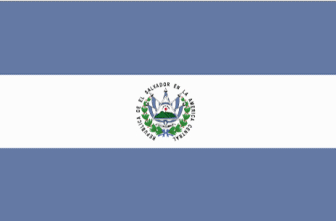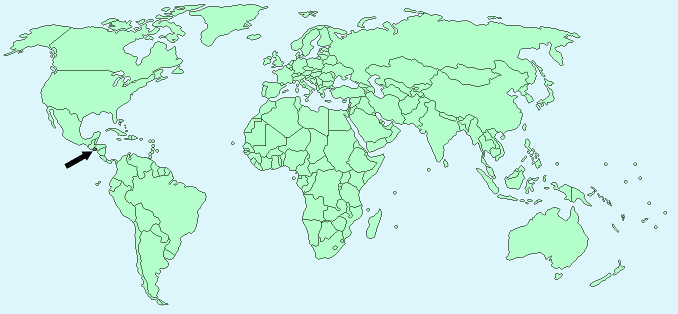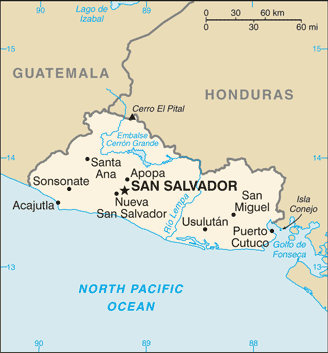El Salvador


Continent – South America
Region – Central America
Size – 21,040 km²
Geography – mountainous with central plateau and coastal plain
Language – Spanish
Religion – 85% Roman Catholic, 17% other
Monetary Unit – U S Dollar
Natural Resources – hydropower, geothermal power, petroleum, arable land
Agriculture – coffee, sugar, corn, rice, beans, oilseed, cotton, sorghum; beef, dairy products; shrimp
Industry – food processing, beverages, petroleum, chemicals, fertilizer, textiles, furniture, light metals

Neighbouring Countries – Guatemala, Honduras
Population – 6,125,512 (2014 estimate)
Population Growth Rate – 1.68%
Average Life Expectancy – 74.18
Capital City – San Salvador (1,605,000 )
Highest Mountain – Cerro El Pital (2,730 m)
Longest River – Rio Lempa (320 km total length)
Climate – tropical, warm and wet 16°C to 34°C
Yearly Rainfall – 180 cm (approx) mostly May to October
Plant Life – pine, oak, mangrove, rubber, dogwood, mahogany, cedar, and walnut trees, balsam, tropical fruit, medicinal plants,
Animal Life – monkey, jaguar, coyote, tapir, armadillo, snakes including boa constrictor
Bird Life – many bird species including parrots
Fish Aquatic Life – many fish species, turtles, iguanas, crocodiles, and alligators
Harvard Reference for this page:
Heather Y Wheeler. (2015). El Salvador. Available: https://www.naturalhistoryonthenet.com/Facts_Figures/Country_Facts/elsalvador.htm. Last accessed Monday, July 18, 2016
Facts and Figures Pages
